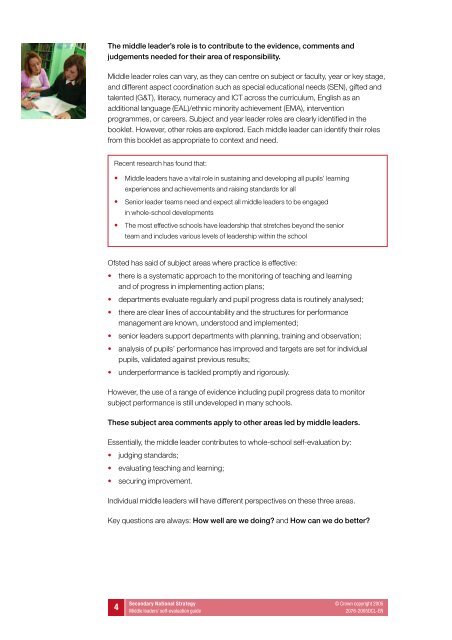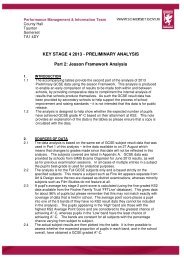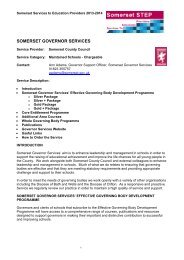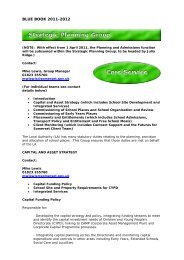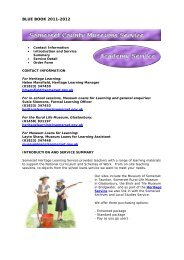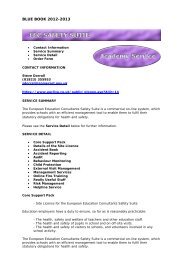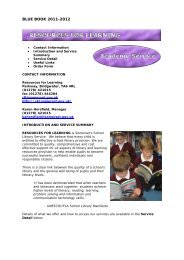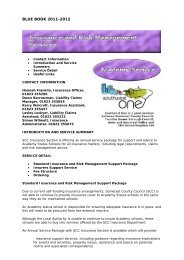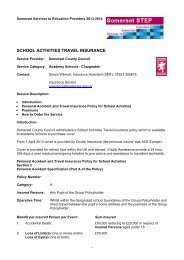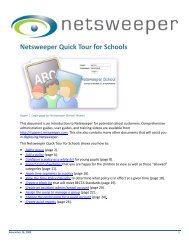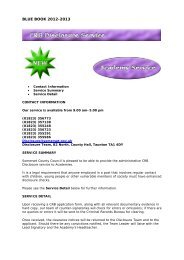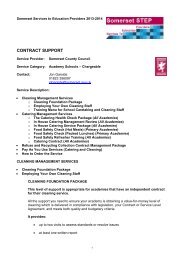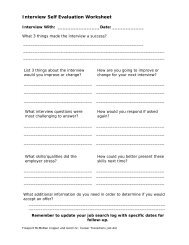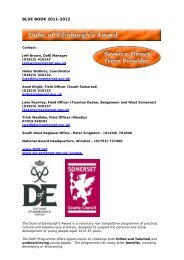Middle leaders' self-evaluation guide
Middle leaders' self-evaluation guide
Middle leaders' self-evaluation guide
You also want an ePaper? Increase the reach of your titles
YUMPU automatically turns print PDFs into web optimized ePapers that Google loves.
The middle leader’s role is to contribute to the evidence, comments and<br />
judgements needed for their area of responsibility.<br />
<strong>Middle</strong> leader roles can vary, as they can centre on subject or faculty, year or key stage,<br />
and different aspect coordination such as special educational needs (SEN), gifted and<br />
talented (G&T), literacy, numeracy and ICT across the curriculum, English as an<br />
additional language (EAL)/ethnic minority achievement (EMA), intervention<br />
programmes, or careers. Subject and year leader roles are clearly identified in the<br />
booklet. However, other roles are explored. Each middle leader can identify their roles<br />
from this booklet as appropriate to context and need.<br />
Recent research has found that:<br />
• <strong>Middle</strong> leaders have a vital role in sustaining and developing all pupils’ learning<br />
experiences and achievements and raising standards for all<br />
• Senior leader teams need and expect all middle leaders to be engaged<br />
in whole-school developments<br />
• The most effective schools have leadership that stretches beyond the senior<br />
team and includes various levels of leadership within the school<br />
Ofsted has said of subject areas where practice is effective:<br />
• there is a systematic approach to the monitoring of teaching and learning<br />
and of progress in implementing action plans;<br />
• departments evaluate regularly and pupil progress data is routinely analysed;<br />
• there are clear lines of accountability and the structures for performance<br />
management are known, understood and implemented;<br />
• senior leaders support departments with planning, training and observation;<br />
• analysis of pupils’ performance has improved and targets are set for individual<br />
pupils, validated against previous results;<br />
• underperformance is tackled promptly and rigorously.<br />
However, the use of a range of evidence including pupil progress data to monitor<br />
subject performance is still undeveloped in many schools.<br />
These subject area comments apply to other areas led by middle leaders.<br />
Essentially, the middle leader contributes to whole-school <strong>self</strong>-<strong>evaluation</strong> by:<br />
• judging standards;<br />
• evaluating teaching and learning;<br />
• securing improvement.<br />
Individual middle leaders will have different perspectives on these three areas.<br />
Key questions are always: How well are we doing? and How can we do better?<br />
4<br />
Secondary National Strategy © Crown copyright 2005<br />
<strong>Middle</strong> leaders’ <strong>self</strong>-<strong>evaluation</strong> <strong>guide</strong> 2076-2005DCL-EN


